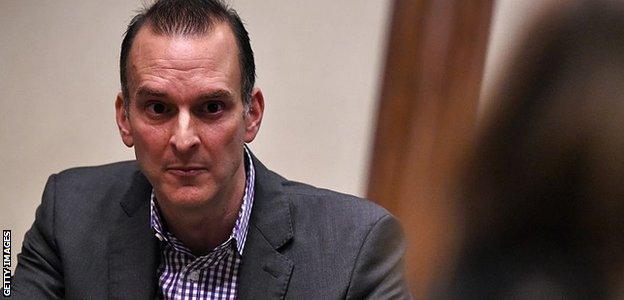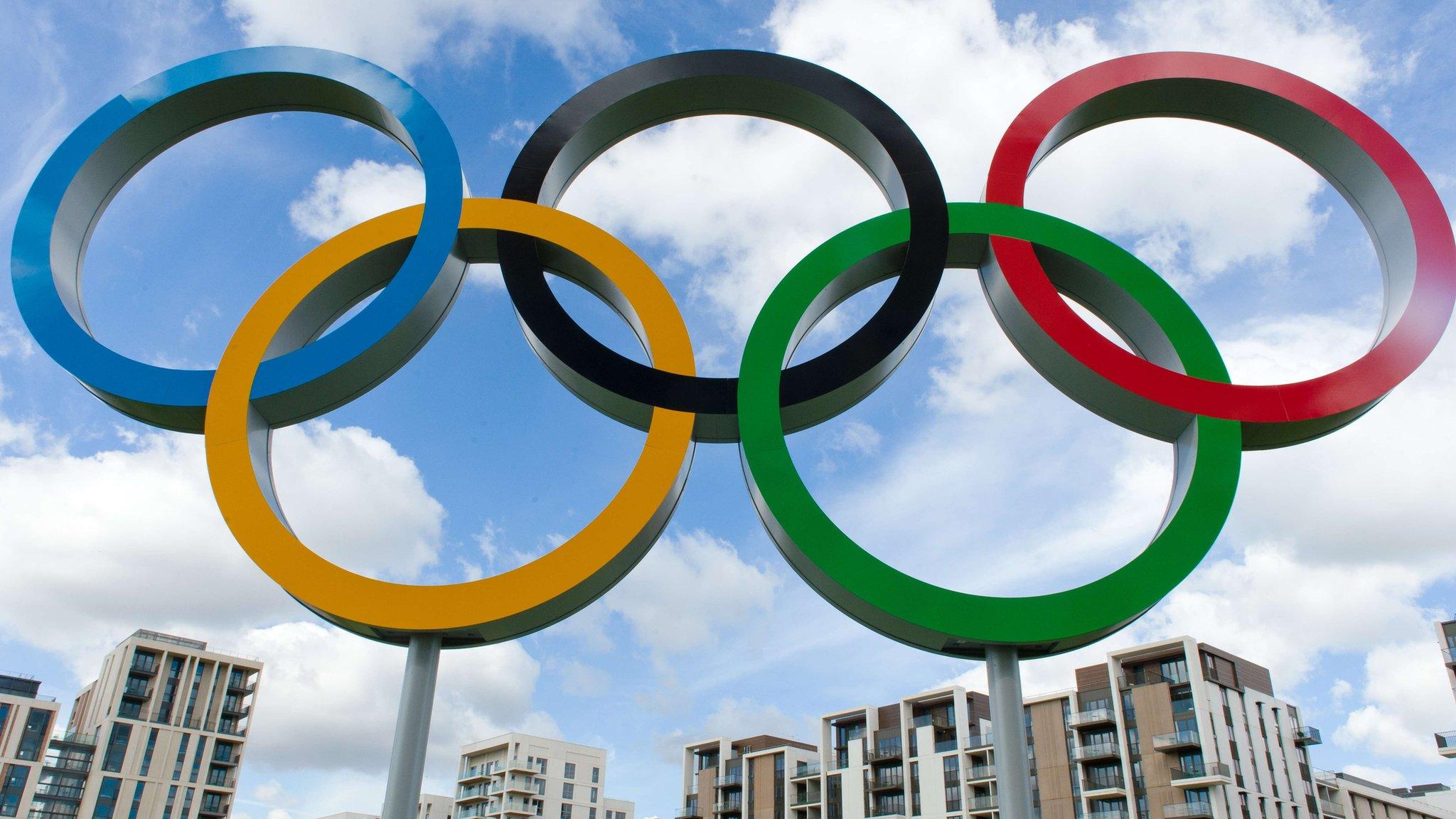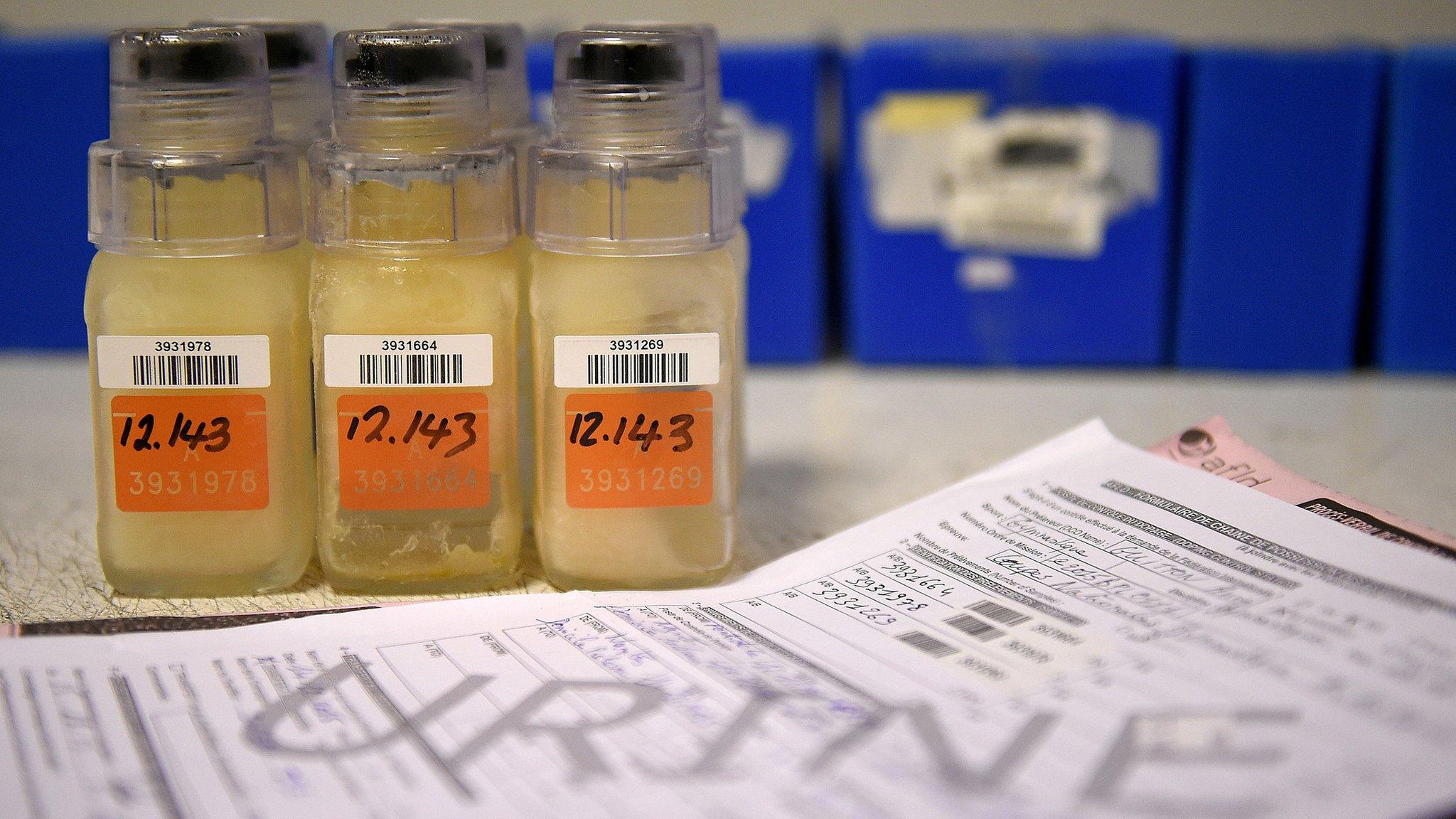Fancy Bears: Usada CEO Travis Tygart criticises hackers after latest release
- Published

Wimbledon champion Serena Williams and Olympic gold medallists Laura Kenny and Mo Farah have all had medical records leaked by Fancy Bears
US Anti-Doping Agency head Travis Tygart has called cyber-espionage team Fancy Bears "con artists" after they released documents allegedly showing "cover ups" by US sports officials.
The hackers - who are believed to be Russian - published emails belonging to a Usada staff member on Thursday.
"This is just another desperate attempt to distract from the real issue of state-sponsored doping," said Tygart.
In July, the McClaren report documented Russian doping in Olympic sports.
It outlined a state-backed scheme and led to more than 100 Russian athletes being banned from the Rio 2016 Games, while all Russians were banned from the subsequent Paralympic Games.
Since then the Fancy Bears, who describe themselves as a global hacking team, have released the medical records of some of the world's biggest sports stars, stolen from the World Anti-Doping Agency (Wada) database.
They claim they want to highlight doping and are fighting for clean sport.
Most records released belonged to athletes who had been given permission by anti-doping agencies to take otherwise banned substances to treat medical conditions.
The latest releases on Thursday were emails which detailed more athletes who have been given therapeutic use exemptions (TUEs), which allow banned substances to be taken for athletes' verified medical needs.

US Anti-Doping Agency head Travis Tygart accused the Fancy Bears group of "a baseless smear campaign"
But Tygart said Fancy Bears were trying to "smear the reputations of athletes and organisations from around the world who choose to operate with integrity and abide by the rules".
"They are con artists," the Usada CEO told BBC Sport. "We are confident that people will see this for what it is: a malicious and illegal invasion of athlete privacy followed by a baseless smear campaign."
Russian officials have denied that the state has anything to do with Fancy Bears.
Usada also highlighted to BBC Sport errors in the latest release by the hackers.
In one example, Fancy Bears claim the organisation "granted" 583 TUEs in 2015 but the accompanying image of a table details that number of applications being "received" by Usada.
Usada's 2015 annual report says 402 TUE applications, external were granted.
Usada is confident the hackers have not breached their security and is working with law enforcement at the highest level in the US to protect athletes it feels have become victims.
The leaks have been criticised by anti-doping officials and sports bodies, who say the TUE system is an accepted part of sport which is strictly governed.
However, critics have said the leaks raise important questions about the widespread use of TUEs and whether they should be allowed in sport.
- Published3 October 2016

- Published6 October 2016

- Published5 October 2016
